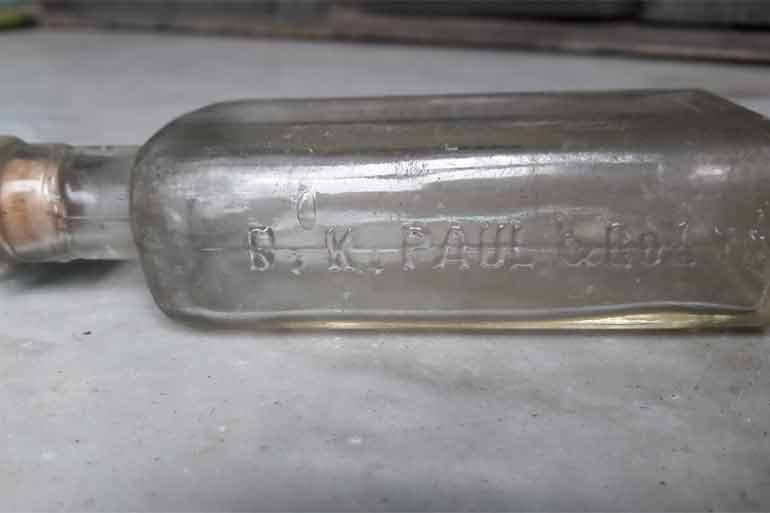What secret lies behind the ornate façade of Medicine House on B.K. Pal Avenue?
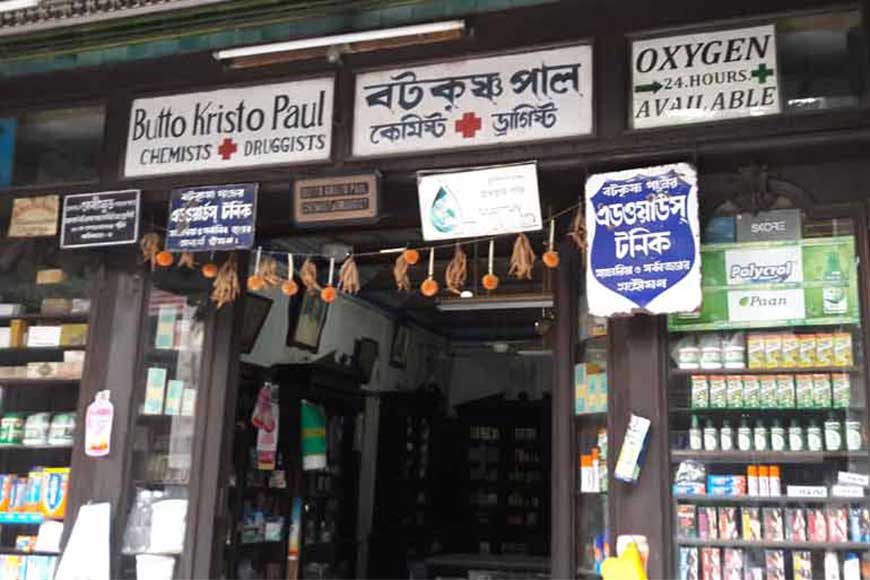
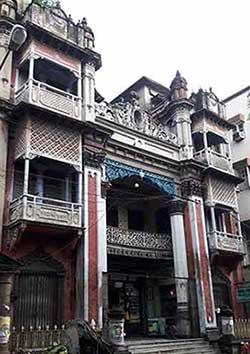 Have you ever crossed an imposing mansion on B.K. Pal Avenue that is known as Medicine House? If you did, may be you looked up at its intricate exterior. However, you probably do not know what lies within, and what history it carries, of revolutionaries and the oppressive British!
Have you ever crossed an imposing mansion on B.K. Pal Avenue that is known as Medicine House? If you did, may be you looked up at its intricate exterior. However, you probably do not know what lies within, and what history it carries, of revolutionaries and the oppressive British!
The entrance to this house still speaks of its past grandeur, with two elephants guarding the gates. Inside are European styled female figurines, holding vine leaves. A statue of Hercules also adorns the building facade, with a globe on his shoulder. Even today, anyone ringing the bell in the middle of the night, can buy medicines from this house.
During British era, this house had a well kept secret. In those days, British police tried to track and capture Indian revolutionaries. Out of desperation, even the police commisioner roamed the streets in disguise of a woman in a palanquin. However, the secret of the Medicine House was well guarded. Even B.K. Paul's son, Harishankar Pal, who later became the city's mayor, never spoke of it. His father, Batakrishna Pal, was probably the only supplier of imported medicines in those days and hence was popular among British officials. They contacted him whenever they fell ill for a steady supply of such medicines.
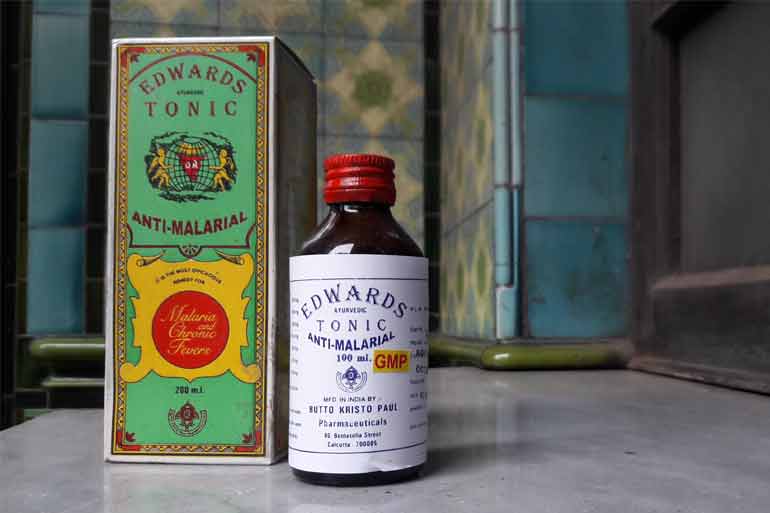
Pal was born in Shibpur, Howrah and lost his parents at an early age. He was brought up at his maternal uncle's house and at the age of 12, started working at his uncle's grocery store. He had entrepreneurship skills and started a jute business and a grocery store, with Madhav Chandra Daw as his partner. His shop stocked imported medicines and in no time became one of the largest drugstores of Bengal, known as B.K. Pal & Company. He even manufactured medicines as per his own formulae, including anti-malarial drugs. The drugs manufactured at his shop were so popular that people from Pakistan, Burma, Sri Lanka came in hordes to buy them. Even the Prince of Wales gave him orders and in his honour Pal named a medicine 'Edward Tonic.'
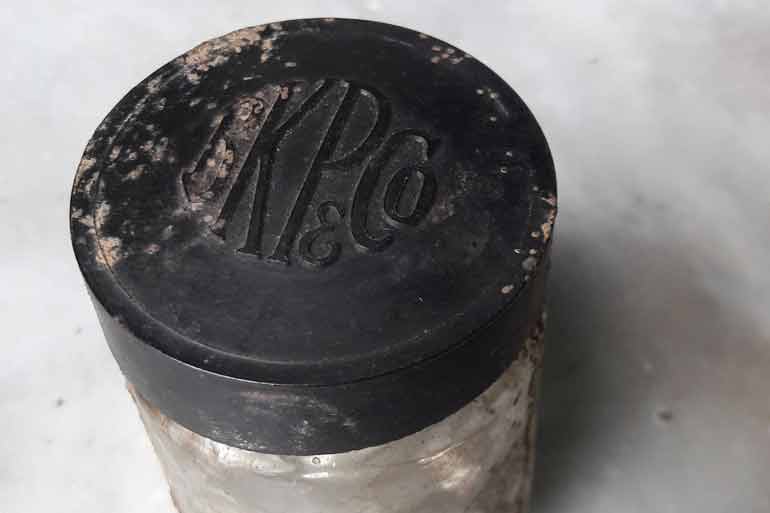
Pal used the facade of his medicine store and charitable dispensaries for supplying arms and chemicals to revolutionaries. The consignments went through the back door. Chemicals such as sulphuric acid, nitric acid, chlorate, used to make bombs, reached freedom fighters. None could ever imagine the man who was so poular among the British, was actually helping the freedom fighters.
The Medicine House still stands as a witness to such legendary tales.
